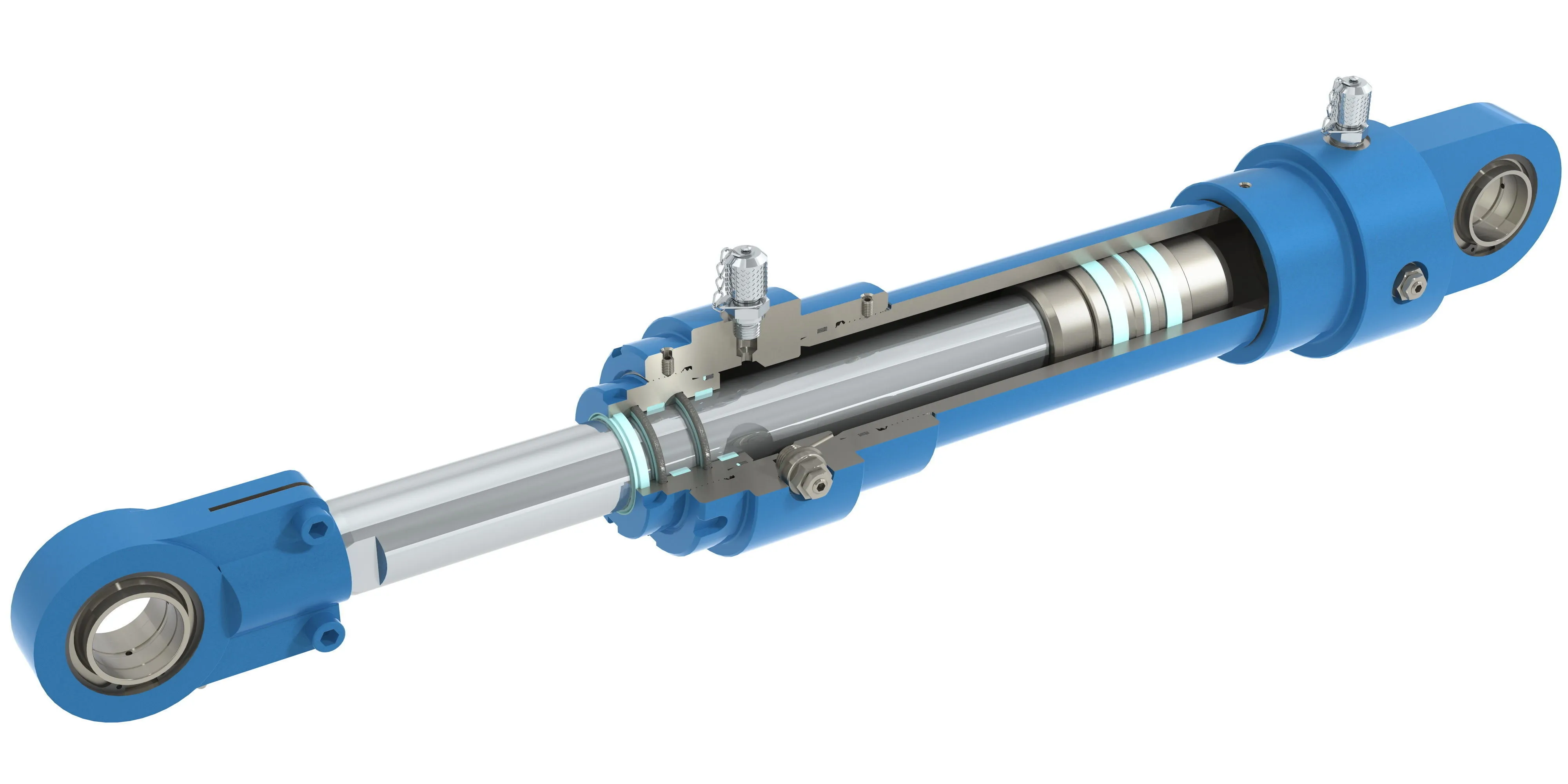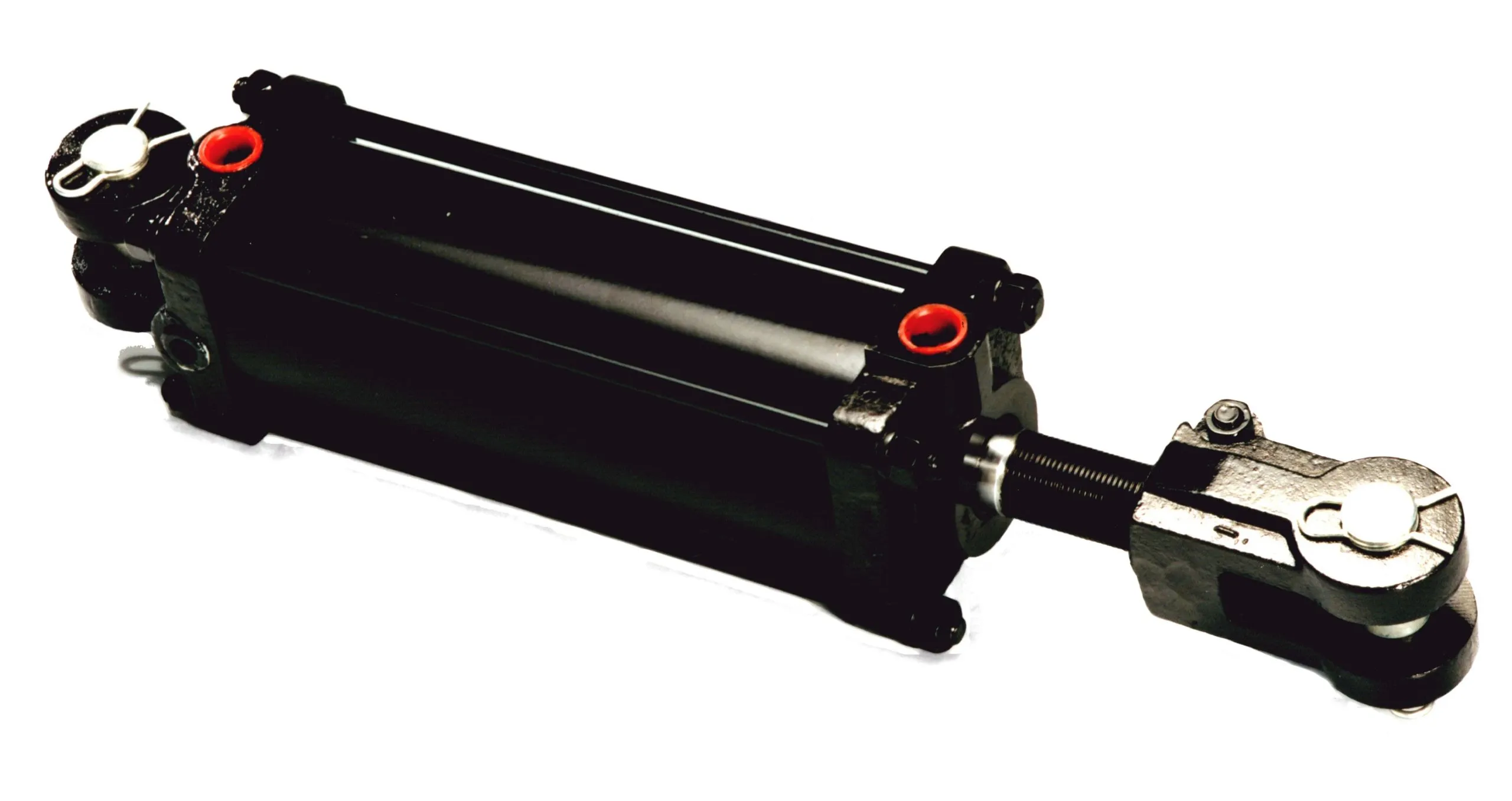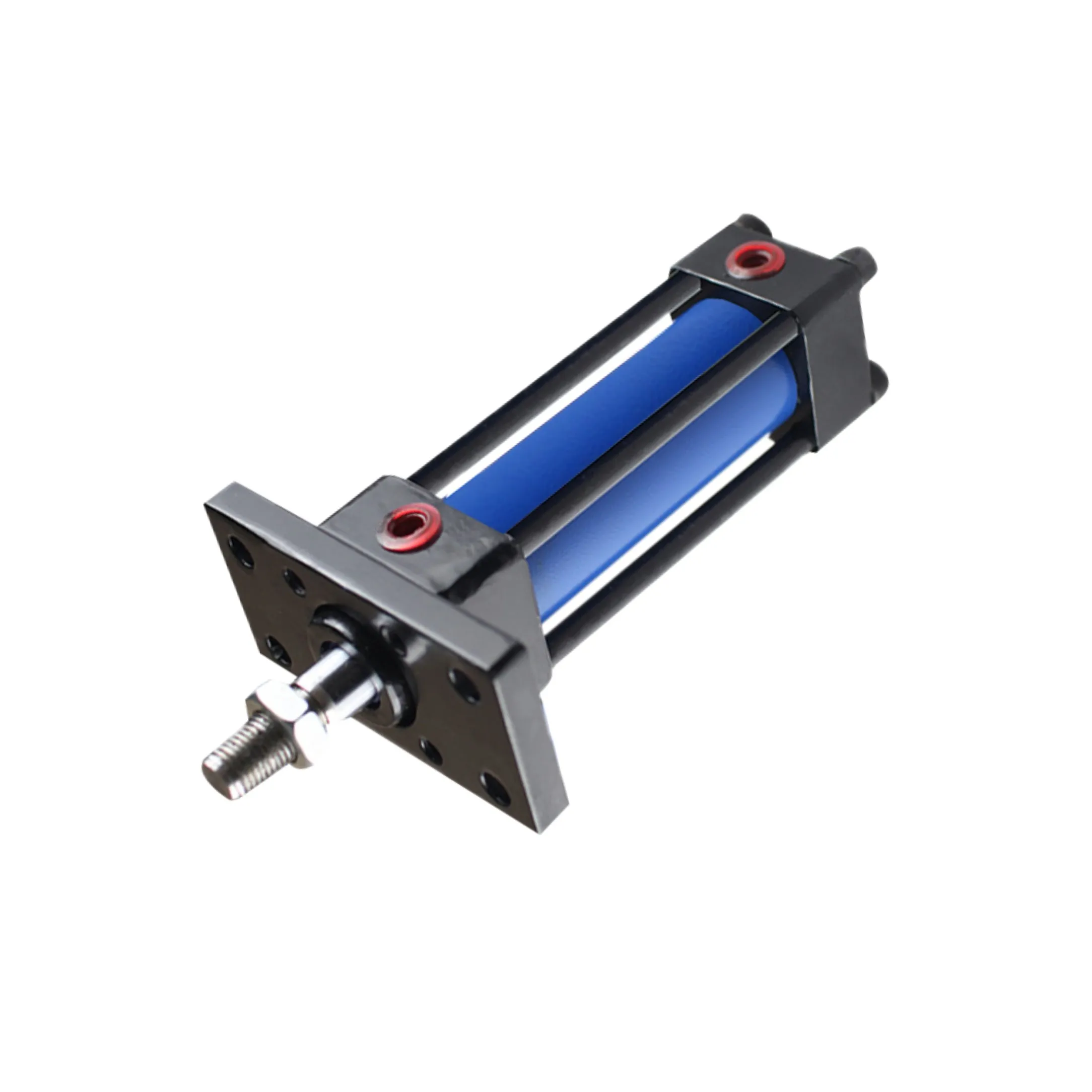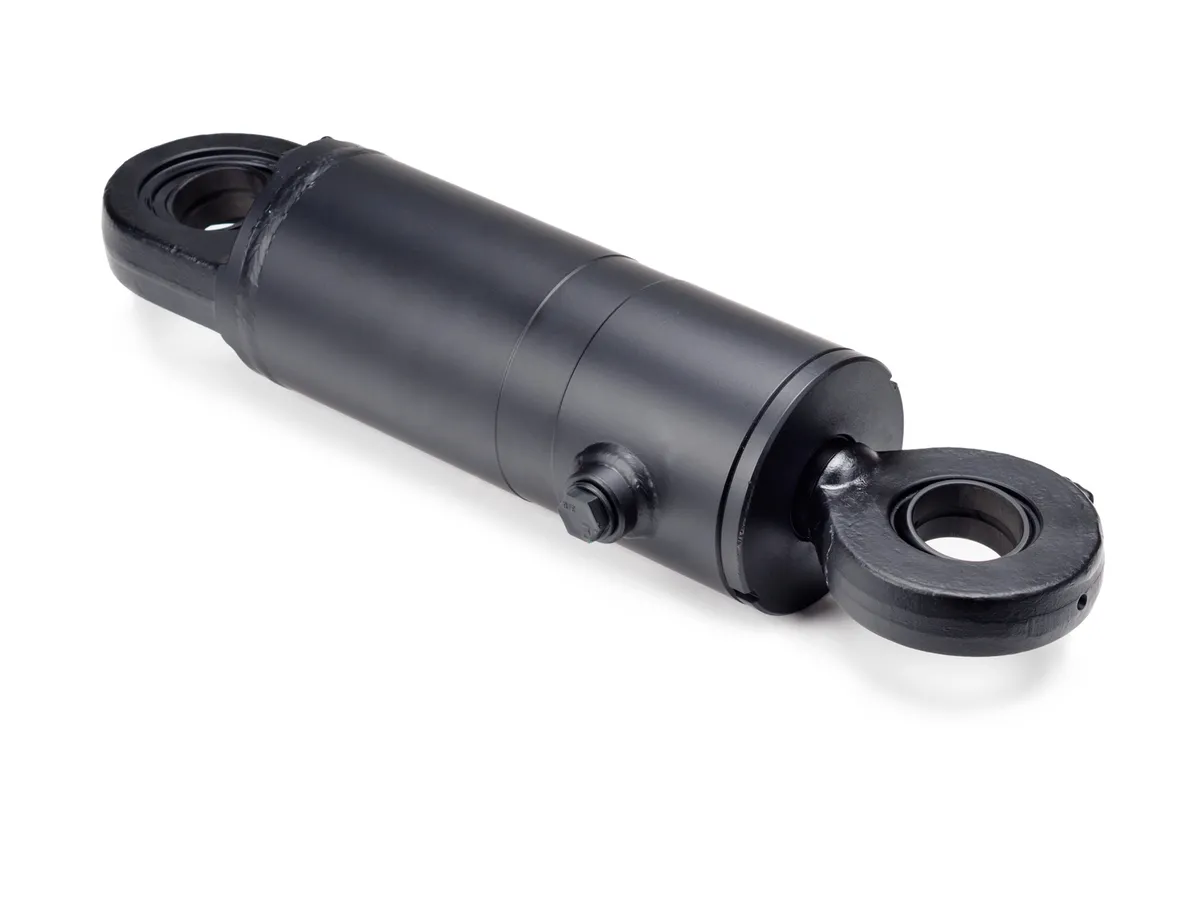Unlocking the Secrets of Locking Single-Acting Hydraulic Cylinders

Introduction to Locking Single-Acting Hydraulic Cylinder
In the realm of hydraulic systems, the locking single-acting hydraulic cylinder stands out for its unique locking mechanism that ensures precise positioning. This specialized cylinder operates under hydraulic pressure in one direction and features a locking function to prevent movement in the absence of pressure.
Design and Construction Characteristics
Locking Mechanism – Safety
The key feature of the locking single-acting hydraulic cylinder is its safety-focused locking mechanism. This mechanism keeps the piston securely in place even when hydraulic pressure is lost, preventing accidental retractions. The locking mechanism can be either mechanical or hydraulic, offering flexibility in design.
Variety
The design of the locking mechanism can be customized to suit specific applications, with options like spring-loaded locking devices, pin locks, or other mechanical locks. This versatility ensures that the cylinder can meet diverse needs effectively.
Compact Structure – Space Optimization
Locking single-acting hydraulic cylinders are engineered to be compact, making them ideal for use in space-limited environments. Their design allows for easy integration into various types of equipment and machinery, optimizing space utilization.
Precision Manufacturing – High-Precision Machining
Manufacturing precision is crucial for locking single-acting hydraulic cylinders to ensure proper fit and sealing performance. Strict quality control measures are implemented during production to guarantee the reliability of each component.
Assembly Process – Specialized Assembly
Professional technicians handle the assembly of locking single-acting hydraulic cylinders to ensure correct installation and calibration of individual components. A pressure test is conducted post-assembly to validate performance and tightness.
Working Principle of Locking Single-Acting Hydraulic Cylinder
The locking single-acting hydraulic cylinder operates on a single-acting mechanism, where hydraulic oil extends the cylinder and pushes the piston outward. The locking mechanism prevents retraction under load, ensuring safe operation even in the absence of hydraulic pressure.
Types and Configurations
Mechanical Locking Cylinder
A mechanical locking cylinder utilizes physical locks like pins or latches to secure the piston, offering robust safety features for precise positioning applications.
Hydraulic Locking Cylinder
Hydraulic locking cylinders maintain pressure in specific chambers to prevent piston retraction, providing a reliable locking solution in demanding environments.
Customizable Locking Mechanism
Locking single-acting hydraulic cylinders can be customized with various locking mechanisms to meet specific operational needs, offering enhanced versatility and performance.
Benefits of Locking Single-Acting Hydraulic Cylinder
Enhanced Security
The locking feature reduces the risk of accidental retractions, ensuring operator safety during critical operations.
Reliability
Designed to withstand high loads and harsh conditions, locking single-acting cylinders deliver consistent performance and durability.
Simplicity
Easy to operate and maintain, these cylinders are user-friendly and suitable for a wide range of applications, enhancing operational efficiency.
Application Scenarios
Construction Equipment
Commonly used in cranes, hoists, and lifts to securely hold heavy objects in place for safe and efficient operations.
Manufacturing
Applied in presses to maintain pressure during material forming processes, ensuring precise outcomes and operational safety.
Transportation
Utilized in stabilizers and jacks for vehicles to enhance safety during maintenance or transportation activities, preventing accidents and damage.
Design Considerations and Selection Criteria
Bearing Capacity
Understanding the load-bearing capacity is crucial for selecting the right locking single-acting hydraulic cylinder for the intended application.
Sealing and Durability
Seals play a vital role in preventing leaks and ensuring long-term performance, while durable construction enhances the cylinder’s lifespan.
Safety and Maintainability
Prioritizing safety features and ease of maintenance is essential when choosing a locking single-acting hydraulic cylinder for reliable operation.
Sealing and Lubrication
Proper sealing using high-quality materials like polyurethane and nitrile rubber, along with regular lubrication, is essential to maintain the performance and longevity of locking single-acting hydraulic cylinders.
Regular Inspection and Maintenance
Implementing routine inspection and preventive maintenance measures can help detect issues early, ensuring optimal performance and extending the lifespan of locking single-acting hydraulic cylinders.
Correct Installation Guide
Following the manufacturer’s guidelines and ensuring proper alignment during installation is critical for the efficient and safe operation of locking single-acting hydraulic cylinders.
Maintenance Tasks
Regular Inspection

Periodic inspections help identify potential issues and ensure the proper functioning of locking single-acting hydraulic cylinders.
Proper Lubrication
Regularly lubricating the cylinder components with the recommended hydraulic oil prevents wear and enhances performance.
Seal Replacement and Calibration Inspection
Replacing worn seals and calibrating the cylinder periodically maintains optimal functionality and extends the service life of the equipment.

Safety Considerations and Environmental Factors
Adhering to safety protocols and considering environmental factors are crucial when operating locking single-acting hydraulic cylinders to prevent accidents and minimize environmental impact.
Fault Diagnosis and Common Problems
Identifying common issues like leaks or malfunctions and implementing troubleshooting solutions can help resolve problems efficiently and ensure uninterrupted operation of locking single-acting hydraulic cylinders.

Unit Power and Optimization
Influencing Factors
Factors like cylinder diameter, operating pressure, piston speed, and load conditions impact the unit power of locking single-acting hydraulic cylinders, requiring careful consideration for optimal performance.
Advantages of Optimization
Optimizing the power unit enhances efficiency, saves energy, and improves reliability, offering multiple benefits for various applications requiring precise positioning.
FAQs
How does the locking mechanism in a single-acting hydraulic cylinder work?
The locking mechanism secures the piston in place using either mechanical locks or hydraulic pressure, preventing retraction under load.
What advantages do locking single-acting hydraulic cylinders offer over standard single-acting cylinders?
Locking cylinders provide enhanced safety, reliability, and precision positioning capabilities compared to standard cylinders, ensuring optimal performance in critical applications.
In what applications are locking single-acting hydraulic cylinders commonly used?
Locking cylinders are widely used in construction equipment, manufacturing machinery, transportation vehicles, and aviation systems where precise positioning and safety are paramount.
Long-Tail Keywords
1. “High-Precision Locking Single-Acting Hydraulic Cylinder”
2. “Customizable Safety Features for Hydraulic Cylinders”
3. “Efficient Positioning Solutions with Locking Cylinders”
Our Company
We are a leading hydraulic cylinder manufacturer specializing in locking single-acting hydraulic cylinders designed for precise positioning applications. With a comprehensive product line and commitment to quality, we have established ourselves as a trusted provider in the domestic and international markets.
Our company offers professional services, international certifications, customized solutions, state-of-the-art production equipment, and reliable after-sales support to meet the diverse needs of our customers.
Author: lyl
